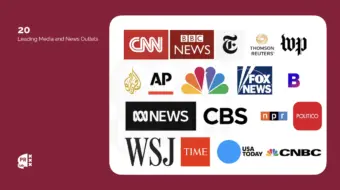As the curtains close on an era of reactionary rule by the most right-wing elements of the capitalist ruling class, we progressives must assess what must be done in order to promote an agenda friendly to working people in this country. A chief and undisputable crisis facing everyone is the crumbling health care system.
Every day, Americans increasingly understand the failure of our employer-based private health insurance model. As the economy continues to reel from Wall Street plundering, rising unemployment means more and more people lose their health insurance, sacrifice their homes and retirements in order to pay for mounting medical bills, and forego essential care because of high costs. Every day, shrinking city, county and state budgets result in cutbacks in essential programs, closing of critical safety-net hospitals, and reduction of staff and services in surviving hospitals — all in a context of nurse and doctor shortages; mounting racial, gender and class health disparities; and a woefully under-resourced public health infrastructure.
A solution to many of these problems is a single, guaranteed, national public health insurance program that covers everyone in our nation from birth to death for all necessary services.
This system is also known as a “single-payer system” because it would be paid for exclusively through our government instead of millions of employer and employee premiums or premiums for individually purchased insurance. It would ensure that no one goes bankrupt because of medical bills, make sure that all providers get paid for services, save the country billions of dollars, and solve many of the access problems faced by the millions of uninsured and underinsured Americans. Proponents have fought for single-payer mostly under the banner of HR 676, “The United States National Health Care Act,” an excellent bill that clearly articulates a progressive vision for reform. Single-payer is the best, most evidence-based and most rational health care reform strategy we can adopt as a country.
So why don’t we? The main reason it is so difficult to win this needed reform is the political power of the insurance industry and other entities that benefit from the current system. To date, progressive health care reform movements have not been able to generate sufficient power to overcome the enormous control these industries have over our government. Reform that leads to a single-payer system would require the elimination of these companies, and we can be certain that they will fight tooth and nail to survive
.
What we need is broad unity among progressive health care (and other) organizations. Unfortunately, some single-payer organizations today (but not all) take a narrow approach, refusing to collaborate with any organization that does not agree exactly with HR 676. This results in the alienation of single-payer advocates from the broader health care reform movement and our inability to generate the pressure needed to win real health care reform.
As we move into the post-Bush era, new times call for new tactics. We achieved the defeat of the far right and the election of President Obama because of broad unity amongst all sorts of different groups, and a main engine behind this victory was the labor movement. Labor is unquestionably the most important driver of a working people’s agenda, and in order for real health care reform to be achieved, labor must be behind it. Therefore, the role of progressive health care activists today is not to insist that HR 676 is the only solution, but to engage widely with labor and a variety of progressive organizations in order to build broad unity and support for real health care reform, even if it looks slightly different than HR 676.
Some sectarian single-payer advocates have taken great pains to attack “incrementalist” health care reform as insufficient and fundamentally different from “real” (single-payer) reform. It is time to move beyond this approach. Political power and popular support is built through ongoing struggle and by achieving victories. In order to build the power we need to pass and implement a single-payer system, we have to win many prior victories. The question we are fighting today is not immediate versus gradual reform, but whether reform will happen at all. The answer by single-payer and non-single-payer progressive activists alike must be an emphatic and resounding YES. There are many struggles ahead that progressive health care activists of multiple hues can wage together. It is defeatist not to win together today because of disagreements we may have tomorrow.
A clear example of a divisive approach by some HR 676 advocates is their attacks against the labor-backed Health Care for America Now campaign (HCAN, healthcareforamericanow.org). HCAN is a coalition of hundreds of progressive national and state organizations, including the AFL-CIO, SEIU, Jobs with Justice, Human Rights Campaign, National Council of La Raza, Congressional Black Caucus Health Brain Trust, Planned Parenthood Federation of America and many others, that have come together to take on the power of the for-profit companies in health care and fight together for a better system.
Narrow-thinking single-payer groups reject HCAN because it is not a purely pro-single-payer coalition. One of the goals listed on HCAN’s web site is that American should have “a choice of a private insurance plan, including keeping the insurance you have if you like it, or a public insurance plan without a private insurer middleman that guarantees affordable coverage.” This inclusion of private insurance plans as part of a mix has infuriated some single-payer activists; one web site charges that HCAN “has surrendered in advance.”
Of course, in many respects, these activists are right: as in the case of housing, education and criminal justice, there ought to be no role for profit-driven companies in health care. The way insurance companies maximize their profits is to charge the most expensive premiums possible and to deny as much care as possible.
However, I think it is important to look more closely at the dynamics of HCAN’s constituent organizations. For all the reasons I mentioned above, we feel incredibly insecure about being able to afford and receive health care when we get sick (and we all will get sick at some point), especially now in this recession. The more insecure they become, the more many people want to hold onto what they have now, even if subpar and irrational. HCAN member organizations represent millions of working-class Americans, with diverse circumstances and outlooks — some ready to demand fundamental health care reform and get rid of the corporate role, some fearful of the uncertainties of change and worried about the role of government, and most feeling varying combinations of these emotions. HCAN’s stance is not a surrender, but reflects the very real confusion and anxiety around health care reform among working people in the United States. The task for progressives is to meet people where they are and bring them along.
The HCAN organizations each have slightly different end goals, but for now, everyone has a common struggle. It is essential that single-payer advocates have a seat at this table and that we constructively bring our unique perspective to this dialogue to help build our progressive majority. Sitting on the outside will only make it more difficult to win a health care system that makes America proud.
Flávio Casoy is a fourth-year medical student at Brown University in Providence, R.I.












Comments